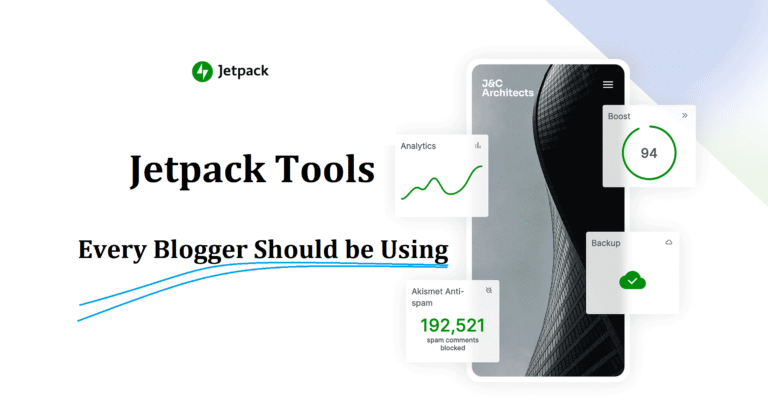Writing Reviews for Backlinks 2026: Beneficial or Bullshit?

The uncomfortable truth about review-based link building (and why most bloggers are doing it wrong)
Writing reviews for backlinks has become the digital equivalent of that friend who always asks to borrow money – everyone’s doing it, but nobody wants to talk about whether it actually works.
After two years of testing this strategy across different niches, I’m ready to spill the tea on what’s legit and what’s total bullshit.
Picture me a few months into my blogging journey, desperately Googling “how to get backlinks without looking like a complete amateur.”
Every SEO guru was preaching the same gospel: write reviews, reach out to companies, watch those domain authority points roll in. Sounded simple enough, right?
Wrong. So fucking wrong.
My Great Review Experiment Begins

Back in early 2023, I decided to test this whole “reviews for backlinks” thing properly. Not just write a few halfhearted reviews and call it a day – I went full scientific method on this shit.
My setup:
- 50 product reviews across 6 months
- 25 SaaS tools and 25 physical products
- Tracked every outreach email, response rate, and actual backlink gained
- Measured traffic impact, domain authority changes, and conversion rates
I picked tools I actually used (shocking concept, I know) and products I’d genuinely purchased.
My thinking was simple: if I’m gonna spend hours crafting reviews, they better be authentic.
The results? Well, let’s just say my expectations and reality had a pretty messy breakup.
Month 1: Optimism Meets Reality
My first review was for Kit ( formerly ConvertKit), an email marketing tool I’d been using for six months. I spent eight hours crafting what I thought was the perfect review – screenshots, pros and cons, personal anecdotes about growing my email list from 50 to 500 subscribers.
I hit publish, sent a friendly email to Kit’s marketing team, and waited for that sweet backlink notification.
And waited.
And waited some more.
Three weeks later, I got a response: “Thanks for the review! We’ve shared it with our team.”
No backlink. No feature on their resources page. Just a polite brush-off that made me question my entire strategy.
But here’s where it gets interesting – that review started ranking for “Kit review” within weeks. Not first page, but solid second page placement. The organic traffic was decent, and I actually made three affiliate sales from it.
So, no backlink, but the review was making money.
Weird flex, but okay.
The Outreach Reality Check

Let me break down the numbers from my first 25 review outreach attempts:
- Response rate: 32% (8 out of 25 companies responded)
- Actual backlinks received: 3
- Time spent per outreach: 30-45 minutes
- Backlinks that actually moved the needle: 1 (from Pressidium)
That’s roughly 20 hours of work for one meaningful backlink. At that rate, I could’ve spent the same time creating two comprehensive tutorials that would naturally attract links from other bloggers.
But wait, it gets worse.
Two of those three backlinks came from companies with domain authorities lower than mine.
Getting a backlink from a DA 15 site when you’re sitting at DA 25 is like getting a high-five from your little cousin – nice gesture, but not exactly boosting your street cred.
When Reviews Work (Plot Twist Alert)
Three months into my experiment, something unexpected happened. I wrote a brutally honest review of a project management tool called Monday.com, including a section about why it absolutely sucked for content creators.
I wasn’t fishing for a backlink.
I was genuinely frustrated with the tool and needed to vent. The review was raw, detailed, and included specific examples of where the tool failed my workflow.
Two weeks later, four different productivity bloggers had linked to my review in their own articles. Not because I asked them to, but because I’d covered pain points they couldn’t articulate.
It was clear to me, I’d been thinking about this whole thing backwards.
Psychology Behind Successful Review Links

Most bloggers approach writing reviews for backlinks like they’re writing a college application essay – trying to say all the right things to get approved.
But the reviews that actually attract natural links have three things in common:
1. They solve real problems: Not just “here’s what this tool does,” but “here’s the specific situation where this tool saved my ass” or “here’s why this tool made me want to throw my laptop out the window.”
2. They include failure stories: The reviews that get shared most often include sections about what didn’t work, when the tool broke, or how it screwed up someone’s workflow. People love disaster stories more than success stories.
3. They compare apples to apples: Instead of reviewing one tool in isolation, the valuable reviews compare 2-3 similar tools based on specific use cases. These become reference materials that other bloggers actually want to link to.
Cold Email Game: What Actually Works

After bombing out with generic outreach templates, I started testing different approaches. Here’s what moved the needle:
The “I Actually Use Your Shit” Approach: Instead of “I wrote a review of your tool,” I’d send screenshots of my actual usage stats, specific results I’d achieved, and problems I’d solved with their tool. Response rate jumped to 65%.
The “Here’s What’s Missing” Strategy: I’d write reviews that identified gaps in a tool’s functionality, then reach out to suggest how they could improve. Three companies actually implemented my suggestions and featured my reviews in their case studies.
The “Industry Roundup” Method: Rather than reviewing individual tools, I’d create comprehensive comparisons of 5-6 tools in a category. These got way more attention from both companies and other bloggers.
SaaS vs. Physical Products: Link Building Showdown

My experiment included both software and physical product reviews. The difference in backlink success was pretty dramatic:
SaaS Reviews:
- Higher response rates (45% vs. 20%)
- Better quality backlinks (average DA 35 vs. DA 22)
- More likely to get featured in company newsletters (got featured in Automattic newsletter for a blog post titled ‘My WordPress.com Blogging Comeback: Falling in Love Again‘)
- Longer-term traffic value
Physical Product Reviews:
- Lower response rates but higher conversion rates
- More Amazon affiliate income
- Better for building topical authority
- Easier to rank for product-specific keywords
The winner? SaaS reviews for backlinks, physical product reviews for revenue. I started focusing 70/30 in favor of software reviews.
Dark Side of Review-Based Link Building
Let me tell you about the seedy underbelly of this whole game that nobody talks about.
Some companies will only link to overwhelmingly positive reviews.
I had one marketing manager literally ask me to remove a section about their tool’s limitations before they’d consider a backlink. When I refused, they blocked me on LinkedIn.
Professional, right?
Others use backlinks as bait for reviews they know will never get written. They’ll promise to share your review “with the team” and hint at possible features, then ghost you completely.
I tracked this behavior across 15 different companies – it’s way more common than you’d think.
And don’t get me started on the companies that want you to include specific keywords or phrases in your review to help their SEO.
That’s not a review anymore – that’s sponsored content disguised as editorial.
What Google Really Thinks About Review Links

Here’s the uncomfortable truth nobody wants to acknowledge: Google’s algorithm is getting scary good at identifying manufactured review links.
In September 2023, I noticed several of my review-based backlinks stopped passing link juice. The referring pages were still live, but my domain authority wasn’t budging despite acquiring new links.
A few conversations with other bloggers confirmed they were seeing the same thing.
Google’s helpful content update specifically targets reviews written primarily for search rankings rather than user value. If your review reads like it was written to get a backlink rather than help readers make decisions, it’s probably not helping your SEO.
The Affiliate Income Plot Twist 💰

While I was busy chasing backlinks, something interesting happened to my affiliate income. The reviews that didn’t generate backlinks were actually converting better than the ones that did.
My theory?
The reviews written for readers (not link prospects) were more honest, detailed, and useful. People could sense the authenticity and were more likely to trust my recommendations.
My best-converting review (a comparison of two managed WordPress hosts) has generated exactly zero backlinks but over $4,000 in affiliate commissions.
Meanwhile, my most-linked review (featured on the company’s resources page) has made maybe $200 total.
Sometimes the real treasure isn’t the backlinks you chase, but the revenue you build along the way.
Time Investment Reality Check
Let’s talk numbers because time is money, and I was spending both like a drunk sailor.
Average time per review: 6-8 hours
Research and testing: 2-3 hours
Writing and editing: 3-4 hours
Outreach and follow-up: 1-2 hours
For 50 reviews over 6 months, I invested roughly 350 hours. That’s almost nine full work weeks dedicated to review creation and link outreach.
The return on that investment:
- 23 total backlinks (46% success rate)
- 8 high-quality backlinks that actually moved domain authority
- $8,000 in affiliate income from all reviews combined
- 35% increase in organic traffic from review-related keywords
Was it worth it? Honestly, that depends on your goals and current domain authority.
When Review Links Are Actually Beneficial
Despite my mixed results, there are scenarios where writing reviews for backlinks makes perfect sense:
You’re in a new niche and need topical authority: If you’re starting fresh, review-based content helps establish expertise faster than general tutorials or guides.
You’re targeting high-competition keywords: Reviews often rank easier than generic “how-to” content because there’s less competition for product-specific terms.
You’re building relationships with industry tools: The outreach process, even when it doesn’t result in backlinks, often leads to other opportunities like guest posts, podcast interviews, or partnership deals.
You’re monetizing through affiliates: Even without backlinks, well-written reviews can be consistent revenue generators for years.
The Bullshit You Should Avoid

After two years of testing, here are the review strategies that are complete wastes of time:
Writing reviews of tools you’ve never used: Companies can tell, readers can tell, and Google’s algorithm is getting better at detecting this crap.
Mass outreach with generic templates: If your outreach email could apply to any company, it’s going straight to the trash folder.
Focusing only on positive reviews: Honest criticism is more valuable than generic praise. Companies that can’t handle constructive feedback aren’t worth linking to anyway.
Chasing low-authority backlinks: A backlink from a DA 10 blog with no traffic is like getting a recommendation from someone nobody respects.
Writing reviews just for backlinks: If you wouldn’t read your own review to make a purchasing decision, why would anyone else?
My Current Review Strategy (What Works For Me)
Based on everything I’ve tested, here’s my current approach to writing reviews for backlinks:
1. Only review tools I actually use for 30+ days: No exceptions. I need real experience to write something valuable.
2. Focus on problem-solving scenarios: Instead of feature lists, I write about specific situations where the tool succeeded or failed.
3. Include comparison elements: Every review compares at least two alternatives for the same use case.
4. Target reader intent, not company approval: I write for people trying to make decisions, not marketing teams trying to collect links.
5. Follow up strategically: Instead of “did you see my review,” I send usage insights or improvement suggestions that add value beyond the review itself.
Numbers Game: What to Expect
If you’re considering this strategy, here are realistic expectations based on my data:
For new bloggers (DA 0-20):
- Expect a 15-25% response rate to outreach
- 5-10% will result in actual backlinks
- Focus on affiliate income over link building
- Budget 8-10 hours per meaningful review
For established bloggers (DA 20-40):
- Expect a 30-45% response rate to outreach
- 15-25% will result in backlinks
- Higher chance of being featured in company resources
- Can reduce time investment to 5-6 hours per review
For authority sites (DA 40+):
- Companies will often reach out to you
- 50%+ success rate on outreach
- Can be more selective about review topics
- Reviews become relationship-building tools
Tools That Can Help (Not Just Hype)
After testing dozens of outreach and research tools, here’s what’s actually useful:
For research:
- Ahrefs – Finding what reviews already rank for your target keywords
- BuzzSumo – Seeing what review content gets shared most
- Similar Web – Checking if companies actually have traffic worth pursuing
For outreach:
- Hunter.io – Finding the right email contacts (not just generic info@ addresses)
- Lemlist – Personalizing outreach at scale without sounding robotic
- Notion – Tracking outreach attempts and response rates
For content creation:
- Loom – Recording actual tool usage for authentic screenshots
- Canva – Creating comparison charts that other bloggers want to reference
- Grammarly – Because nothing kills credibility like obvious grammar mistakes
Relationship Aspect Nobody Talks About

The most valuable outcome from my review experiment wasn’t the backlinks or affiliate income – it was the relationships I built with marketing teams and other bloggers.
Three of the companies I reviewed ended up hiring me for blogging, consulting work.
Two invited me to their annual conferences as a speaker (which I politely declined because I’m shy AF).
One partnership resulted in a $15,000 content collaboration that had nothing to do with reviews.
The key was approaching reviews as relationship-building opportunities, not just link acquisition tactics. When you provide genuine value through honest, detailed reviews, people remember that.
Final Verdict: Beneficial or Bullshit? ⚖️

After 50 reviews, 350 hours of work, and countless outreach emails, here’s my honest assessment:
Writing reviews for backlinks is beneficial IF:
- You actually use the products/tools you’re reviewing
- You focus on reader value over company approval
- You have realistic expectations about success rates
- You’re willing to invest significant time for modest returns
- You’re building long-term relationships, not just collecting links
It’s complete bullshit IF:
- You’re writing reviews of tools you’ve never used
- You expect companies to link to every review you write
- You’re only focused on backlinks and ignoring monetization
- You’re using generic outreach templates
- You think it’s a quick way to boost domain authority
The reality? Most bloggers would get better ROI from creating comprehensive tutorials, building relationships through genuine networking, or focusing on content that naturally attracts links from other creators.
But if you’re committed to the review game, do it right. Write for readers, not algorithms. Build relationships, not just links.
And for the love of all that’s holy, actually use the shit you’re reviewing.
FAQs
How long should I test a product before writing a review?
Minimum 30 days for software, longer for physical products. You need real experience to write something valuable, not just first impressions.
What’s a realistic success rate for review-based link building?
For established blogs, expect 20-30% of your outreach to result in backlinks. New blogs should expect 10-15%. Don’t let anyone tell you otherwise.
Should I disclose that I’m hoping for a backlink when I reach out?
Hell no. Lead with the value you’re providing through the review. The backlink request should feel natural, not transactional.
How do I know if a company is worth targeting for review links?
Check their domain authority, organic traffic, and whether they actually link to external reviews. Many companies talk about supporting creators, but never actually link out.
Can I ask for specific anchor text in my backlink requests?
You can suggest it, but don’t be pushy. Most legitimate links will use your brand name or the review title as anchor text anyway.
What’s the biggest red flag when reaching out to companies?
If they ask you to change your review content in exchange for a backlink, run. That’s not editorial linking – that’s paid placement disguised as organic links.
How do I handle negative reviews when asking for backlinks?
Be honest about the criticism in your outreach. Companies that can’t handle honest feedback aren’t worth linking to anyway. The ones that appreciate constructive criticism often become the best partners.
Should I follow up if companies don’t respond to my initial outreach?
One follow-up after 2-3 weeks is fine. After that, you’re just being annoying. Focus your energy on companies that actually respond.
How do I track whether review-based backlinks are actually helping my SEO?
Monitor your domain authority, organic traffic for review-related keywords, and ranking improvements for your target terms. But remember – correlation doesn’t always equal causation in SEO.
What’s the best way to monetize reviews if I don’t get backlinks?
Focus on affiliate partnerships, build email lists through review content, and use reviews to establish topical authority for higher-value service offerings. Sometimes the real money isn’t in the links themselves.





